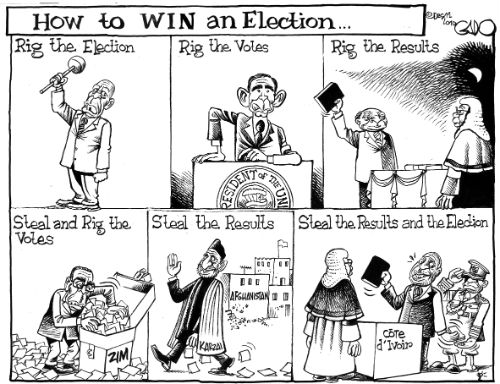1700 hours 8th January 2011
I address this message to users of electricity in Zimbabwe and all other stakeholders who may be interested.
Recent Status of Generation in Zimbabwe
Over the Christmas period the country experienced a much improved availability of power. All six units at Kariba were working as were five of six units at Hwange and Munyati Power Station was generating between 20 and 40 MW. In addition, with much of industry taking a well deserved break, there was additional power on the grid for those customers on line.
Shortly after Christmas one of the, larger, units at Hwange was lost due to failure of certain components. On the 28th of December we had to take out a unit at Kariba for two weeks of routine maintenance. On the night of the 5th January we had to take out a second unit at Kariba which twins with the unit already under maintenance. These two units share a transformer on which components had to be replaced – this was planned for this period.
In summary customers will be experiencing excessive load-shedding in contrast to the Christmas period, as there has now been a sharp drop in generation just as industry is coming back to work.
Looking ahead over the next two weeks. Every effort is being made to bring the unit lost at Hwange back to service during this weekend. The fifth unit at Kariba should be on the grid on Monday with the sixth returning to service by mid-January. This should bring the country back to a “normal load-shedding regime” by the middle of the month.
Looking ahead this year
It is important to advise customers of the realities at Hwange Power Station. The supply out of Hwange remains fragile in spite of significant progress having been made to stabilise supply during 2010. We still need to undertake major works on: the raw water supply line from the Zambezi River, work on the two large raw-water reservoirs at the station is underway; urgent and significant work will be undertaken during the first quarter of this year on the Ash disposal system (a new specialised pipeline has been ordered and is under manufacture). Further to this, the units themselves at the station need ongoing work to optimise their output. To assist us with this “project related work” as well as to train and mentor staff at the station we have engaged a blended team from India and Zimbabwe under the management of WAPCOS – a highly respected Indian-based organisation in the energy field. This team will be on-station early in February. We are optimistic that there will be a consistency in supply out of Hwange Power Station by the end of the first quarter 2011 followed by a gradual increase through the year.
Kariba Power Station should remain at full capacity except for the isolated occasion when the station is forced into “sudden shut-down” due to exogenous shocks which can occur on the grid – these can emanate from the region or sudden failure of local transmission lines.
All three Small Thermal stations (Harare, Munyati and Bulawayo) will be brought back into service during the first quarter of this year. The cost of generation from these stations is high due to both the distance from the coal fields and, in some cases, the need to use higher quality coal. As a consequence power from these stations can only be sold to those companies who have dedicated power lines and who are willing, and able, to pay the higher tariff. However this additional power will help boost the economy and create additional employment in the process.
Beyond 2011
It is important to note that once we have achieved stability in supply and optimised our present installed-capacity the supply of electricity will still remain below demand. Ongoing efforts are being made to increase the importation of additional power from the region by our sister company, ZETDC. But there is a regional scarcity. In addition our economy will grow and hence demand for electricity. The only way to close this demand-supply gap is to build extra generation capacity, which will take at least three and a half years from the time funding has been secured.
ZPC’s planning and preparation are well advanced such that its can approach relevant investors and/or partners in pursuit of adding capacity at Hwange Power Station (top priority as a “base-load” station) and Kariba (to add to “peaking demand”). We have the full and emphatic support of our ultimate shareholder to secure investment for the generation sector. In addition we plan, over the next two years, to retrofit the Small Thermals in a bid to increase the energy sent out and lower the costs.
In Closing
I take the opportunity to thank the entire staff of ZPC for their commitment, hard and long hours of work during 2010 – most often with constrained resources. Particular gratitude is extended to those who worked over the Festive Season – day and night. I also extend a note of thanks to our Ministry for their candid, progressive and demanding support.
I thank all our customers for your patience and understanding. I encourage you all to keep paying for the units of electricity that you use. In addition please could we all take all possible measures to reduce our usage – it is good for your pocket and for the Nation.
Best Wishes The Board and management of ZPC are determined to stabalise and increase the generation levels in 2011 to well above those levels achieved in 2010.
I wish you all, users of electricity and the staff of ZESA as a whole, a safe and fulfilled 2011.
R. Maasdorp Chairman ZPC (chairmanZPC ( @) gmail.com)
Only relevant and constructive emails will be replied to from this address.
All other queries should be directed to the Zesa email address of: pr ( @ ) zesa.net
For daily updates on the generation and load-shedding status visit the home page of www.zesa.co.zw










